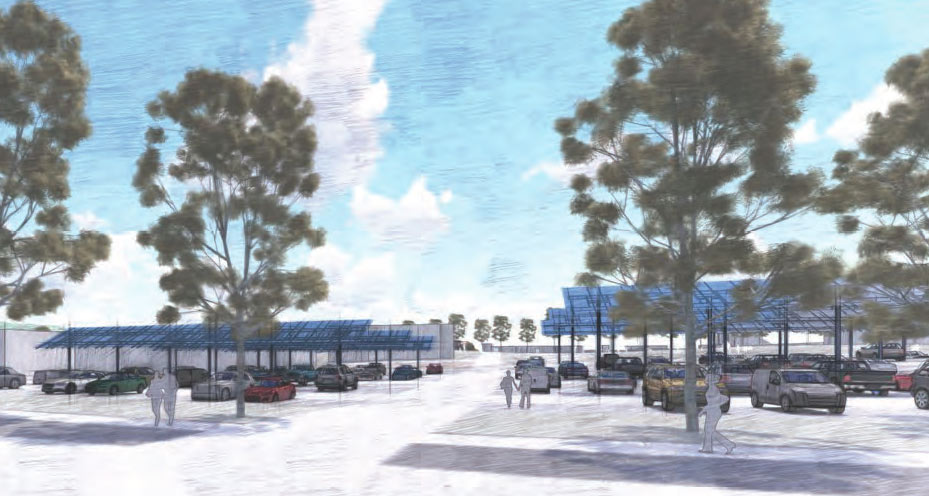
The Riverside Community College District received a Sustainability Award from the Southern California Association of Governments. The District won for its Sustainability and Climate Action Plan.
SCAG is the metropolitan planning organization of six of the 10 counties representing 191 cities and 19 million residents in Southern California. SCAG undertakes a variety of planning and policy initiatives to encourage a more sustainable Southern California.
Embracing its climate responsibility, the District has implemented a roadmap toward its sustainability goals. The District established parameters that it believes will move itself to becoming a leader in addressing climate change in Southern California. Building upon previous sustainability accomplishments, the District took a bold step with the Board of Trustees approving an energy services agreement with TotalEnergies Distributed Generation USA, LLC, for energy conservation services. The nearly $38 million agreement will allow the District to harness solar energy to power campus buildings, District, and Ben Clark Education Center facilities.
“RCCD recognizes its responsibility to operate in a socially, environmentally and economically conscious way; reduce their carbon footprint; protect natural ecosystems; preserve our resources; and contribute to social mobility and well-being,” Aaron Brown, vice chancellor of Business & Financial Services, said. “The plan defines the long-term vision and cultural reset for a sustainable future.”
The District and its three colleges cover 401 acres of land within western Riverside County.
The plan was developed while working with hundreds of stakeholders throughout the process, the plan brings together the range of ideas and initiatives that was identified as critical to the campus and community. Across the District, leadership held eight values sessions. After meeting with faculty, staff and students, five key impact areas were identified: decarbonization and climate justice, water and ecosystems, equality and social justice, waste minimization and procurement, and resiliency. Through this work, leadership developed an Integrated Energy Master Plan that details the energy conservations measures and decarbonization goal throughout the district sites.
The District’s aim is to reduce resource consumption over five to 15 years.